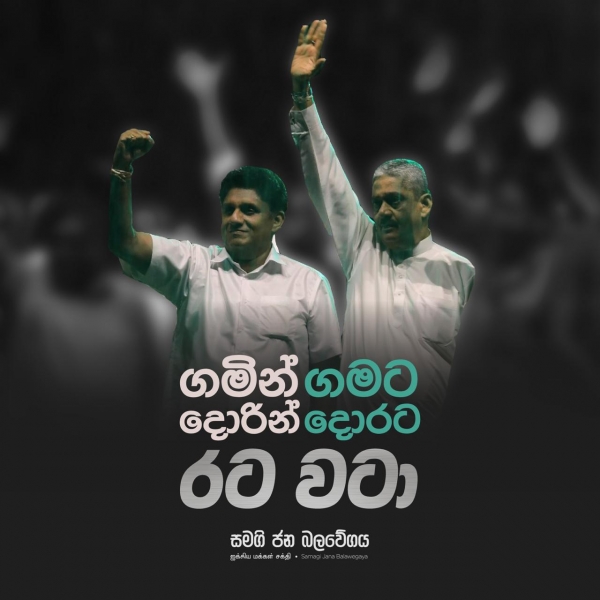With many speculating that MP Patali Champika Ranawaka is projecting himself as a Presidential candidate for 2024 and a potential leader for the Samagi Jana Balaweagaya, Opposition Leader Sajith Premadasa has executed a fresh strategy to consolidate his power in the party.
Many believed that Ranawaka would be given the second-in-command position in the SJB following his resignation from the Jathika Hela Urumaya (JHU), bringing him a step closer to the party leadership and the Presidential candidacy. However, propaganda material prepared for the district level promotion campaign of the SJB features Field Marshal Sarath Fonseka alongside Premadasa, indicating that the former Army chief, a one-time Presidential Candidate of the UNP-led alliance, is the de facto deputy leader of the party.
The party will also have a 80-member Working Committee which will have the representation of the parliamentary group and many other bodies affiliated with the SJB.
Meanwhile, informed party sources said that according to the newly-adopted constitution of the SJB, six senior Vice Chairmen would be appointed as the second tier of leadership. Field Marshal Sarath Fonseka, Patali Champika Ranawaka, Kumara Welgama, Rajitha Senaratne and Imthiaz Bakeer Markar are likely to be appointed the senior Vice Chairmen of the party. Former UNP Chairman Kabir Hashim is expected to be appointed the Chairman of the SJB while Sajith Premadasa and Ranjith Madduma Bandara will continue as the Leader and the General Secretary.
Several political analysts said the new arrangement would weaken Champika Ranawaka’s bid as a potential Presidential candidate and an “alternative leader” for the main opposition.
However, Ranawaka will continue his campaign as the “43th Brigade” — a movement seeking to attract the children of “free education” introduced to Sri Lanka in 1943. Launching his campaign, Ranawaka said his attempt was not to crown a person, but to crown a generation that was empowered by the policy of free education in Sri Lanka.










